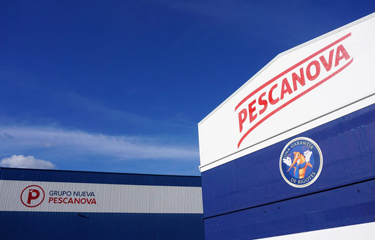Nueva Pescanova begins using recycled plastic packaging

Nueva Pescanova will use plastic waste to produce seafood packaging through an advanced recycling process.
The Pontevedra, Spain-based vertically integrated seafood firm said it will be the first company in its sector to reuse marine plastic pollution in its packaging material.
Nueva Pescanova will collect plastic from riverbeds, coastal areas, and up to 50 kilometers from the coast and begin producing packaging from it for some of its Pescanova brand products in from the second quarter of 2022.
“As a seafood company, it is our great responsibility to care for the seas and oceans, the ecosystems on which our activity depends and which we must all take care of together,” Nueva Pescanova CEO Ignacio González said in a press release. “With this initiative we will prevent this plastic waste from reaching the marine environment, giving it a new life. We have set ourselves the goal of making 100 percent of our packaging recyclable by 2025 and, through this action, we will be one step closer to achieving this.
About 12.7 million metric tons of plastic end up in the ocean every year from both land and sea sources including urban and stormwater runoff, littering, inadequate waste disposal and management, the fishing industry, nautical activities, and aquaculture. This project will facilitate the recovery of 10 metric tons of plastic waste, mostly large fragments, before it has the chance to end up in the ocean and break into smaller fragments of microparticles and nanoparticles.
Marine plastic pollution impacts a variety of ocean ecosystems. Sea turtles, whales, dolphins, and more can get entangled in larger plastic netting or lines, and plastic can fill their stomachs causing starvation and gut obstructions. Microplastics, which are carcinogenic and endocrine-disrupting, have been found in every ocean and have the potential to be harmful to humans, as these particles have been seen to migrate from stomach to tissues in fish. Recently, microplastics were found in human placentas.
Nueva Pescanova is partnering with SABIC to make packaging that will be made from 90 percent of plastic-waste materials. SABIC is the pioneer for certified circular polymers which allow low-quality plastic to be recycled into polymers that have identical properties to virgin-based polymers, allowing repeated recycling with no loss of properties or characteristics.
This plastic waste initiative is part of the Pescanova Blue Sustainability Program, a plan to drive sustainable use of natural resources in all parts of the company’s supply chain, including fishing, farming, processing, and marketing. Additionally, the company has joined the Principles for a Sustainable Ocean of the United Nations Global Compact and promised to undertake responsible practices to ensure conservation of the oceans in the 19 countries in which it operates in, covering 62 fishing vessels targeting 70 species of fish and shellfish.
Photo courtesy of Nueva Pescanova






Share